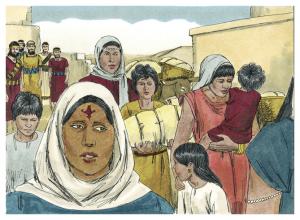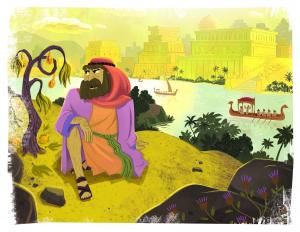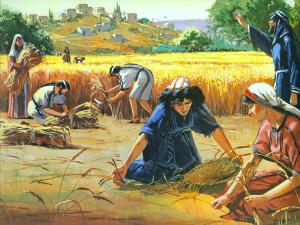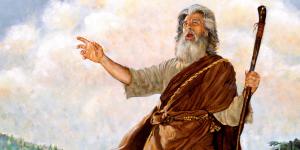
Two books in the Old Testament are ones I like least, and two are my favorites. All four may have been written about the same time, although that is not certain.. The least liked are Ezra and Nehemiah. My favorites are Ruth and Jonah. The two pairs are like point and counterpoint. I imagine Jesus liked the stories of Ruth and Jonah, but not Ezra and Nehemiah. The latter two, however, provide background for Ruth and Jonah. My favorite stories will have to wait until the next posts.
Episode 9 in Opening the Scriptures on the Way to Emmaus: Why Messiah had to Suffer. Introduction and links to other posts in the series here.
We pick up the story when the Babylonian Captivity is ending. Babylon, the great empire, had conquered what was left of Israel’s descendants after an earlier empire, Assyria, had vanquished the Northern Kingdom. Jerusalem and Solomon’s temple are ruins, the Jews are in exile. But another power will rise to replace Babylon.
After about 50 years of exile the Jewish people get permission to return to Jerusalem. The new Persian overlords have a different, more accommodating, policy toward their subject peoples. Probably they see the advantage of having client buffers around their empire whom they can cow into being more or less friendly. The Jews rebuild Jerusalem, and the temple stands again—a much smaller version. A sacrificial regimen again takes its place in the temple.
Would the Jews remember the lesson of the prophets, that God desires mercy and justice more than sacrifice? What would become of David’s kind of holiness, which does not foster divisions among groups of people? What kind of identity would God’s people pursue? Did the people look for the best in another after their own experience of being of least regard? The picture is fuzzy, and the Bible itself is struggling to find its way. Given the historical circumstances, we might understand if most Jews clung to their identity in difference from others rather than in compassion.
Ezra and Nehemiah dominate the picture.
The return of the exiles to Jerusalem led to conflict with the “People of the Land.” Some of these were descendants of the ones left behind by the deportation of 50 years previous. The opposition stemmed partly from the returnees’ exclusionary attitude toward those who had not undergone exile and, perhaps, had not been privy to the new theological developments of the exiles’ synagogue culture.
The situation right away provokes two judgments. First, the theology of the returning exiles was probably closer to what we consider true monotheism than that of the People of the Land, although both groups worshiped the same God. Second, if we look for where Jesus might locate himself, I’d say it’s with the rejected People of the Land.
There are friendlier times, as at the completion of the new temple under the leadership of Nehemiah. Both groups join in the celebration with massive sacrifices of livestock. The least compassionate point comes about 50 years later when the priest Ezra arrives, having researched the purity codes of the scriptures. He demands that all Jewish men who have taken wives from among the People of the Land send them away. The biblical books of Ezra and Nehemiah tell this story.
Another biblical point of view
But Ezra’s exclusiveness was not the Bible’s only point of view. The books of Ruth and Jonah show quite a different attitude toward foreigners and may have been a rebuttal to the Ezra faction. These latter two are stories. One’s a sweet romance and the other’s a humorous tall tale. Both are set in the past so they also qualify as historical fiction.
Whoever wrote these last two books must have known they were shaking up some religious sensibilities. They tell of God’s favor toward foreigners, even enemies of Israel. They tell us where Jesus’ sympathies lie, where he would have seen himself. The next two posts, as we near the end of this Emmaus series, are about Ruth and Jonah.
Image credit: Kevin Pendergrass via Google Images












